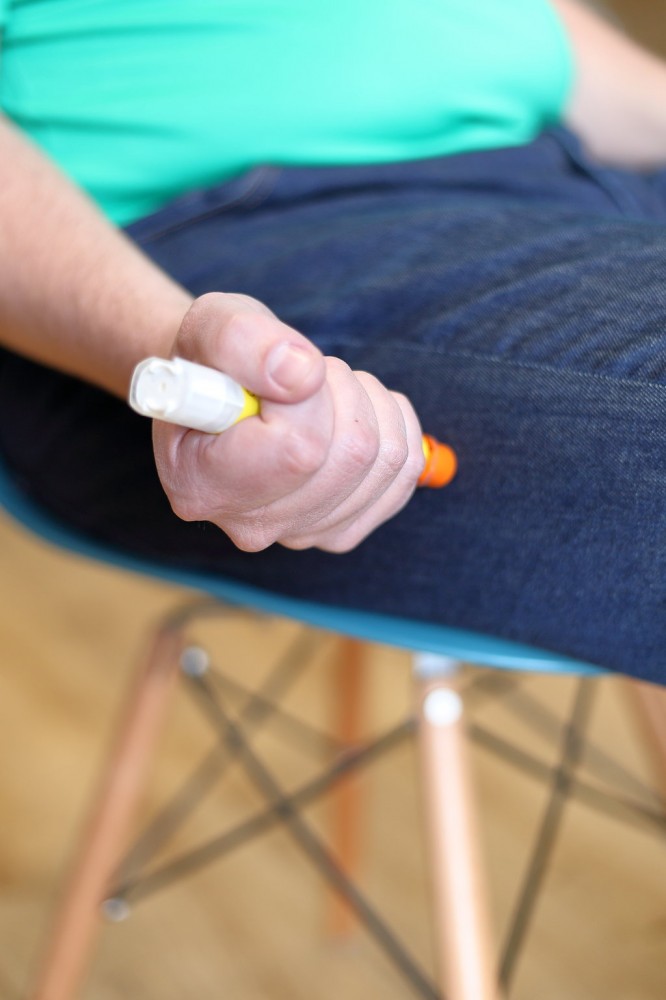Paediatric First Aid Courses for Treating Anaphylaxis
It was recently reported that in June 2017, Karanbir Cheema, aged 13, died after having a severe reaction at his school in West London. Karanbir was asthmatic and had allergies to wheat, gluten, egg, milk, and tree nuts. The coroner recorded that the school's healthcare provision for Karanbir was "inadequate" and said a contributing factor in his death was the fact his allergy action plan was not included in the school's care plan or medical box.
After a delay, Karanbir was administered with an EpiPen at the school, which contained adrenaline that was a year out of date. It was not possible to say whether having adrenaline that was in date would have changed the outcome, the coroner said.
According to the National Union of Teachers, the number of children at risk of anaphylaxis is on the increase. One in 70 children in the UK is allergic to peanut, and the number of those affected by other anaphylaxis-related allergens seems to be increasing. These children are not ill, but are healthy children who may become very unwell, very quickly if they come into contact with certain foods or substances.

What is Anaphylaxis?
Anaphylaxis is a severe allergic reaction which may be life-threatening; it can be fatal if treatment is not received quickly. The reaction usually occurs straight after contact with a trigger (or allergen), however, it can happen a few hours later. Different people have different triggers, for example, foods (e.g. peanuts, eggs or seafood), medicines (e.g. penicillin) or animals (e.g. bee or wasp stings).
Treatment Types
As of the 1st June 2019, our Paediatric First Aid Course now also incorporates basic training in the safe use of Adrenaline Auto-Injectors. There are three different types of adrenaline auto-injector – Emerade, EpiPen and Jext. These are used in different ways, so it is very important that the specific instructions provided with the auto-injector are followed.
Adrenaline Auto-Injectors are administered in an emergency, if a person has any signs of an anaphylactic reaction. The injection of adrenaline may prevent a full-scale reaction before an ambulance arrives.
Milder reactions are sometimes treated with an antihistamine such as Piriton. In any case, careful vigilance should be maintained, as mild symptoms are often the sign that a serious reaction is imminent.
Anaphylaxis Symptoms
The first signs of an anaphylactic reaction are the tightening of the throat, difficulty breathing, swelling or tingling of the mouth or tongue, developing a skin rash or itching.
The following symptoms may indicate a severe reaction:
• Difficulty swallowing
• Difficulty speaking or breathing
• A swelling of the throat and/or mouth
• A skin rash anywhere on the body or a general reddening of the skin
• Abdominal cramps
• Feeling sick (nausea)
• Being sick (vomiting)
• A sudden feeling of weakness
• A racing heart, with panic and anxiety
• The person may collapse or become unconscious
The auto-injector must only be used in the thigh. Never inject it anywhere else on the body, as this could cause an injury.
When to Call Emergency Services
Once administered, the medicine should start working virtually straight away. If the symptoms have not improved five minutes after using the auto-injector, then another dose with a new auto-injector can be given. Keep the person in the recovery position or lying down till help arrives.
Telephone for an ambulance and say that someone is having an anaphylactic reaction.
The person must go to the hospital after using an auto-injector, even if they seem well. Tell the doctor which auto-injector was used, and how many. Take the auto-injector to the hospital, where it can be disposed of safely.

Booking Paediatric First Aid Courses
We recommend that taking a First Response (First Aid) Ltd first aid course is the best way to ensure you have the confidence, knowledge and skills to deal with an emergency. You can read our top reasons to learn first aid here.
What’s stopping you investing 3 days of your life to save someone else’s?
If you would like to find out more about our Paediatric First Aid courses or would like to book onto a course, please contact out friendly team today on 01543 372888.
*Please note that First Response (First Aid) Ltd offers first aid tips for guidance only and should not be taken as medical advice. First Response (First Aid) Ltd is not accountable or responsible for any diagnosis made or actions taken based on our guidance and advice.
Why choose First Response? (First Aid) Ltd
First Response (First Aid) Ltd have some of the most amazing trainers out there, and anybody who has had the pleasure of attending any one of the many courses would fully agree with this statement.
Well done, team First Response (First Aid) Ltd and a big thank you goes out to our customers for providing us with so much positive feedback.
Give Us Your Feedback
Latest News

First Response First Aid Sign Armed Forces Covenant
In a significant move underscoring its dedication to the Armed Forces community, First Response First Aid Ltd (FRFA), a leading UK provider of first aid and safety training, has proudly announced its signing of the Armed Forces Covenant.

From the military to the training room
Like all great success stories, we're well aware that some of our most fantastic strengths as an organisation lie with our people, and today we want to shine a light on a special member of our training and delivery team, Laura North. Her journey from the military to First Response First Aid's training room has brought an incomparable set of skills, an unforgettably warm personality, and a unique and invaluable perspective that has helped position First Response First Aid (FRFA) as an industry leader.

CPR Training - Is eLearning acceptable?
Important Update: Mandatory In-Person CPR Training
Newsletter Signup
Sign up to our monthly newsletter and get latest news and special offers straight to your inbox.







.png)
















